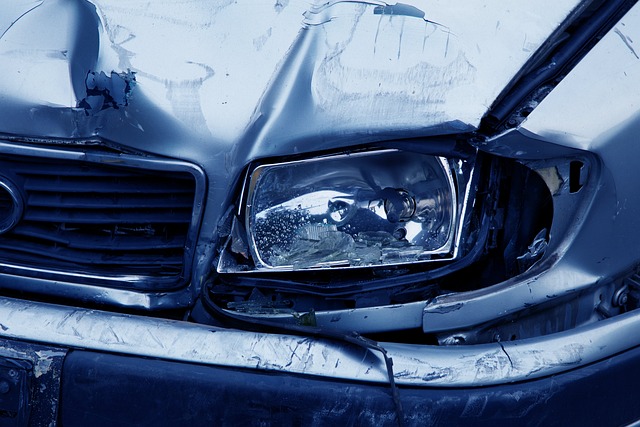
Have you ever been involved in a car accident? Maybe it was your fault. If so, you may feel terrible and need clarification on the steps to take next. When you are at fault in a car accident, it can be difficult to know your rights and responsibilities as an individual. Sometimes, the ramifications of being at fault can have significant financial implications. Additionally, there may be other legal and insurance concerns for drivers involved in the crash. Knowing what to do when at fault in a car accident is essential for medical and legal protection. From comprehending insurance regulations to understanding basic safety precautions, here’s what you need to know about who is liable after a motor vehicle collision – and how to protect yourself from future accidents.
1. Remain Calm
The first thing to remember is to remain calm and collected. This will help you stay focused, make the right decisions in a difficult situation, and have a clear understanding of your rights and responsibilities. First, you should never attempt to leave the scene, knowing that you are at fault. This will make matters worse for yourself and your insurance company because you will be viewed as a potential threat to the other driver. Also, it is not worth jeopardizing your health or life by getting into an accident with another person. By remaining calm, you can assert your rights more effectively and get the necessary treatment needed to protect yourself in the event of an accident.
2. Call the Police
After you have stopped your vehicle, it’s important that you contact the police and file a report in the event of any personal injury or extensive damage to property or vehicles. The reason is that you will need the police report to substantiate your injuries and the damage you sustained to claim with your insurance company. In some cases, you may be able to file a claim without an official police report, but it is always advised that you file this important document for evidence purposes. Filing a police report also protects your rights in the event of medical malpractice or substandard medical care by an emergency response team such as an ambulance.
3. Exchange Information
Exchange information with the other driver, including names, contact information, insurance company details, and license plate numbers. Do not discuss fault or apologize for your role in the accident, as this could be used against you in court. Exchanging such information is part of the standard protocol for car accidents, and it will help with the claims process and substantiate your injuries.
4. Refrain from Discussing Details
Avoid discussing details of the accident with anyone other than your lawyer or insurance provider. Anything you say could be used against you in court or by the other driver’s insurance company. By doing this, you will avoid additional legal and insurance concerns that could become your responsibility.
5. Take Additional Precautions
While it’s important to file a police report and to exchange information as above, it is also crucial that you take additional precautions when at fault in an accident. It is recommended that you do not get out of your vehicle after the accident or risk getting into another collision with another driver. This is especially true when the crash involves extensive damage or property damage. Consider staying in your vehicle and calling for help from the police. Additionally, you should contact a friend or family member to come to your aid. Only leave your vehicle once authorities have arrived.
6. Contact a Lawyer
If you need clarification on your rights and responsibilities, consider speaking to a qualified lawyer specializing in car accidents and personal injury law. An auto accident attorney can answer any questions you have about your personal injury and car accident claim and explain the complex legal issues with your claim. If you get in an accident in Texas, a Houston car accident lawyer can help you collect the necessary evidence to prove that the other party was at fault, which will help you get the justice you deserve. This will help you in the long run if you need to sue the other party and protect your rights.
7. Obtain Medical Treatment
The final step you should take within the first 24 hours after an accident is seeking medical treatment for any personal injuries sustained in the collision. When you are injured in a car accident, it’s crucial that you have physical evidence of your injury to be able to claim with your insurer. Physical evidence includes a doctor’s note or hospital documentation of your treatment. Suppose your injuries were minor and you were not taken to the emergency room. In that case, you should still visit your doctor within 24 hours of the accident to have documentation and accounts of any injury you received.
8. Notify Your Insurance Company
Contact your insurance provider as soon as possible to report the car accident. You should also provide them with any photos or documentation you collected at the accident scene. Notifying your insurance company of a claim is an important step so that they can get started processing your claim process. Their legal obligation is to pay the full amount of your damages – but only if you were not at fault for the accident. However, remember that insurance companies are in business to make a profit. This means they will try to minimize their obligation to pay you by any legal means necessary.
9. Take Photos
Document the accident scene by taking photos of any visible damage to both vehicles. Additionally, take pictures of any skid marks or debris that may have been left behind from the crash. Taking photos also helps officials who may be called to the scene to have additional evidence that can be used in a court case.
Conclusion
By following these steps, you can protect yourself from being held liable for any damages or injuries caused by an accident. Additionally, you will better understand your rights and responsibilities as an individual involved in a car crash. Contact a lawyer for extra guidance if you have questions or concerns about your case. In many cases, the location of the accident is paramount to the outcome of a car accident.


